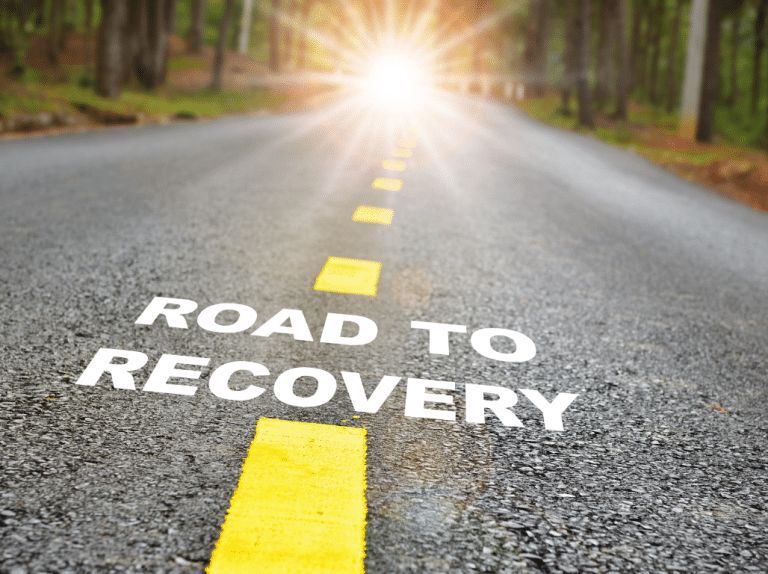Addiction Recovery Is Not A Stright Path But There Can Be A Timeline
Addiction, now called Substance, Alcohol or Behavior Use Disorder is confusing. Here’s some of what we know.
30 years of research shows there are many paths to recovery, as cited in the Surgeon General’s 2016 Report on Addiction. But there are some essential steps that can’t be skipped. And everyone has to be involved for individuals and families to heal. Why is addiction recovery so hard? Stigma plays a part.
Is there proven path to addiction recovery that everyone should follow? Is addiction treatment the same for alcohol, meth addiction, opioid addiction, gambling addiction, tobacco and vaping addiction as well as food disorders? What kinds of addiction treatments are needed, and how long will it take before lasting recovery can be achieved? Is just stopping use enough? How about life after rehab or detox, or even sober living? And just as important how do family members heal? Connection and commitment are the foundation of recovery.
It is a fact that substance alcohol and behavior alter brain function
No one wants to become a totally different person, but substance, alcohol, gambling and other compulsive behaviors change people forever, and they need a lot of help to recover. Addiction is a chronic, relapsing disease of brain reward. People who are addicted no longer have the ability to stop, and they will do anything to support their habits including hurting others by stealing, lying, violence, threats, manipulation. True Life Detox Program says addiction is chronic.
If this has happened to you in your family, you know that everyone changes to accommodate the user. You may make excuses, cover up, constantly deal with crisis after crisis, pay bills and legal costs many times over without achieving improvement. Other people may not understand why you risk everything, even the wellbeing of other loved ones. In fact, Your brain function has changed, too. You’re not the same, so having just one person stop using will not heal the family.
Addiction recovery is a process for everyone and connection is the key
No one’s destructive behavior patterns automatically reverses after use stops. Everyone in the family retains the behaviors they developed from their own or a loved one’s addiction, and untreated those behaviors will remain throughout your lifetime.
This can be confusing for people who long for a quick fix and believe rehab, sober living, or outpatient treatment can reverse the substance user’s survival patterns that no longer work for them. The fact that people don’t automatically return to their previous selves also poses a perplexing problem for researchers. What are the proven treatments that will end both substance use and the behaviors that accompany it? There aren’t any. Recovery is a process.
Necessary process for addiction remission, thought, and behavior Change
- Stopping use
- Healing the brain
- Learning the language of recovery
- Following a recovery program
- Creating new habits in a drug-free lifestyle
- Establishing healthy relationships
- Becoming accountable and honest
- Managing money and time
- Working at a paying job to restore reliability and trust
9 steps to addiction recovery for substance and alcohol
- Detox in a safe environment. This can be with or without medication depending on the addiction.
- Assessment of substance and alcohol users to determine long term treatment needs. This could be a therapist, physician, psychiatrist addiction specialist, or a combination of providers.
- All addictions are not treated the same. For opioid addictions Medically assisted treatment is considered important by some experts to allow time for the brain to heal. Other medications to treat anxiety and depression might be prescribed by a psychiatrist or physician. Bio-feedback, trauma and many other kinds of therapy can be useful to change feelings and behaviors.
- Make a treatment plan. After evaluation, a treatment plan should be developed to reflect the length of time it actually takes to learn reliability accountability and life skills.
- A treatment plan might include being in patient at a rehab, followed by intensive out patient treatment while living in a sober residence. It might include detox, followed by intensive out-patient treatment for six months or longer, followed by weekly therapy and other sessions. Many people find success after medically assisted treatment, several years in sober living communities, group, and other therapies. Create reasonable goals and expectations. Addiction recovery requires persistence and patience
- Healing the brain takes several years, so don’t think short term treatment will solve the problem.
- All treatment programs should include some kind of 12 step group (whether NA, AA, Smart Recovery, Celebrate Recovery, Al Anon, or other group that teaches the language of recovery. Groups don’t not just help people to stop using, they also serve as a guide to behavior and attitude change.
- Sober living usually has a work requirement so getting and keeping a stress free job is essential.
- When trust and accountability have been established, work is in place, and healthy relationships are in effect, those in recovery still need ongoing support through the rest of their lives. While treatment may end, and the disease is in remission, it still requires lifelong management.
To learn more about each phase of recovery, use the fly-away menu (often called hamburger) to explore the recovery topics and categories in ROR.
For family members, healing requires understanding the recovery process and language, as well as family therapy. To begin any recovery process, CODA, Al-anon, Nar-anon and other support groups with people experiencing the same issues are a great start.





















